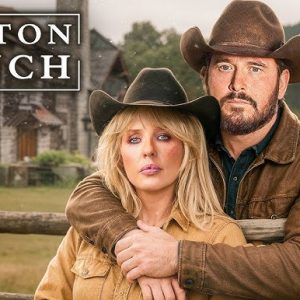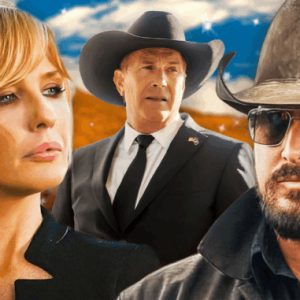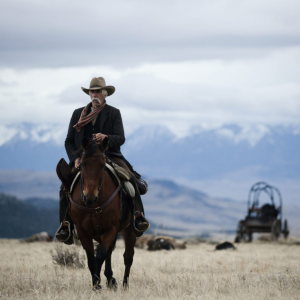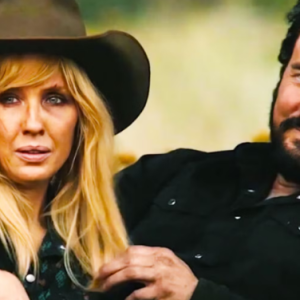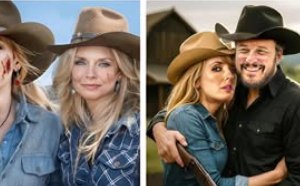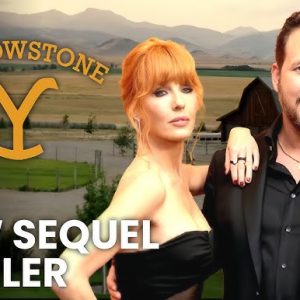The world of Yellowstone was on track to become one of the most enduring legacies in modern television, a generational epic created by Taylor Sheridan and John Linson that had gripped audiences with its raw depiction of family loyalty, land disputes, and political intrigue, encompassing grit, glory, betrayal, and blood. Yet, this sprawling narrative came to an abrupt halt, not because the story had run its course, but due to a single shocking departure: Kevin Costner.
Costner, who portrayed the formidable patriarch John Dutton III, was widely seen as the heart of the show. His commanding presence and unwavering determination symbolized both the strength and flaws of the Dutton dynasty, making Yellowstone synonymous with his portrayal for many viewers. However, behind the scenes, tensions simmered. Reports indicate Costner’s decision to walk away stemmed from multiple disputes—primarily over scheduling conflicts, compensation issues, and creative disagreements with Sheridan. Despite early hopes to reconcile and keep the show running for eight seasons or more, negotiations unraveled. Consequently, the fifth season, released in two parts, became Yellowstone’s final, and notably rushed, chapter.
According to a Bloomberg report, Sheridan initially envisioned Yellowstone as an expansive story that would span many more seasons, aiming to build a vast universe with John Dutton as its cornerstone. Costner’s departure fundamentally altered this vision. Instead of replacing Costner or shifting the story, Sheridan made the bold call to conclude the flagship series, pivoting his focus to an expanding array of spinoffs. This abrupt curtailment is particularly poignant given the numerous unresolved storylines of key characters like Beth, Kayce, Rip, Jamie, and Monica. Each held significant potential for compelling arcs—Beth’s emotional war with Jamie, Kayce’s rise as the true heir, and Monica’s healing from trauma—narratives that could have provided material for several additional seasons. The second part of Season 5, which concludes the series, implicitly acknowledges this untapped potential, shifting the narrative focus from John Dutton to his children. Costner’s exit, by forcing an accelerated ending, left fans lamenting the loss of what could have been a much longer, richer saga exploring the full depth of the Dutton family tree.
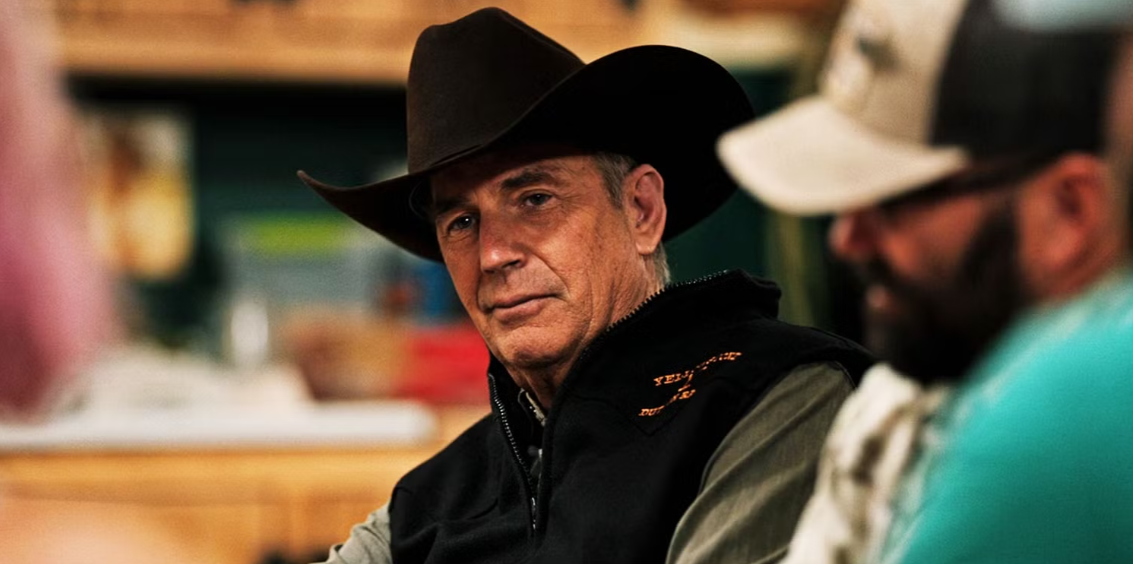
The success of Yellowstone’s existing spinoffs, 1883 and 1923, unequivocally demonstrates the universe’s capacity to survive and even thrive independently of Kevin Costner’s presence. Both prequels garnered critical acclaim, showcasing Sheridan’s masterful storytelling. 1883 delved into the Duttons’ origin story with Tim McGraw and Faith Hill, while 1923 expanded this history with Harrison Ford and Helen Mirren. These shows compellingly proved that Yellowstone’s appeal extended beyond Costner, offering narratives rooted in the same gritty realism and emotional stakes, thereby confirming that the Dutton name itself, rather than solely John Dutton, constituted the franchise’s true lifeline. This continued expansion, evidenced by upcoming projects like “The Madison” (reportedly set in the 1940s) and confirmed future spinoffs focusing on Beth and Kayce, underscores the profound depth and fertile ground of Sheridan’s creative vision. He possessed the momentum and material to construct a universe on par with sagas like Game of Thrones or Breaking Bad, a vision that Costner’s exit regrettably short-circuited for the original series.
Indeed, Yellowstone could have continued effectively without John Dutton. While integral to the show’s foundation, the spotlight had already begun to shift by Season 4. Kayce was increasingly stepping into his father’s shoes, Beth had evolved into the family’s fiercest protector, and Jamie’s dark trajectory positioned him as a compelling antagonist. The series boasted more than enough strength in its ensemble cast to not only survive but potentially flourish without its original lead. Sheridan, in many respects, appeared to be preparing for a post-Costner Yellowstone; notably, Elsa Dutton, the compelling narrator of both 1883 and 1923, even closes the flagship series, symbolically signaling a shift away from John as the sole anchor and towards a broader legacy. Yellowstone, at its core, was never solely about one Dutton; it was always about the entire bloodline.
The fallout from Costner’s departure transcends mere behind-the-scenes drama; it serves as a crucial lesson in the dual nature of star power – its ability to both build and, inadvertently, disrupt a series. While Sheridan was compelled to pivot his plans, and the Yellowstone universe continues its expansion, the original story was undeniably deprived of its intended full arc. This abrupt conclusion does not diminish Yellowstone’s significant achievements as one of the most-watched cable dramas with a sprawling fanbase. Yet, fans are left with a palpable sense of being robbed, not just of more episodes, but of the deeper character development and profound emotional payoffs that were never fully realized.
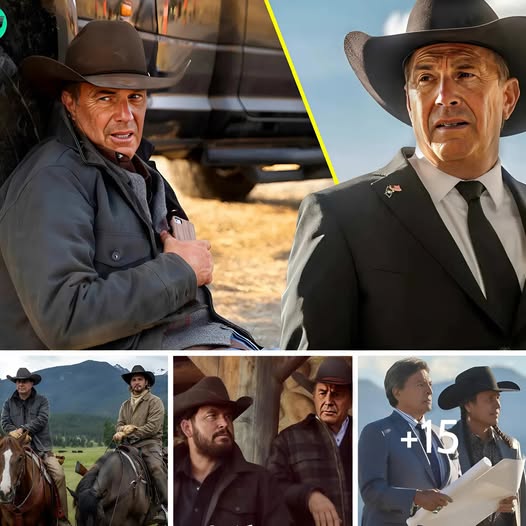
As for the future, with “The Madison” in production and additional spinoffs anticipated, Sheridan is clearly committed to continuing the Dutton narrative. The pertinent question is whether he can sustain the unique magic without the foundational anchor that initiated it all. Beth’s journey still holds immense promise, Kayce’s spiritual struggles could become the nucleus of a new series, and even Jamie is ripe for narratives exploring redemption or further descent into destruction. These characters have already proven their capacity to command the screen; now, they simply require the narrative space to truly evolve.
In conclusion, Yellowstone did not end because its story had concluded; it ended due to one actor’s departure. Kevin Costner’s walkout, undoubtedly rooted in a complex array of issues, irrevocably altered the trajectory of what could have been a once-in-a-generation television epic. Taylor Sheridan meticulously constructed a world poised to rival the largest TV universes, and he may still achieve that grand vision through his expanded universe. However, the original Yellowstone series will forever carry the imprint of an unfinished chapter. As fans prepare to bid farewell, they do so with the knowledge that this was not the intended plan, but rather a compromise – a necessary pivot – and ultimately, not the ending Yellowstone truly deserved. This, indeed, is the true tragedy.
